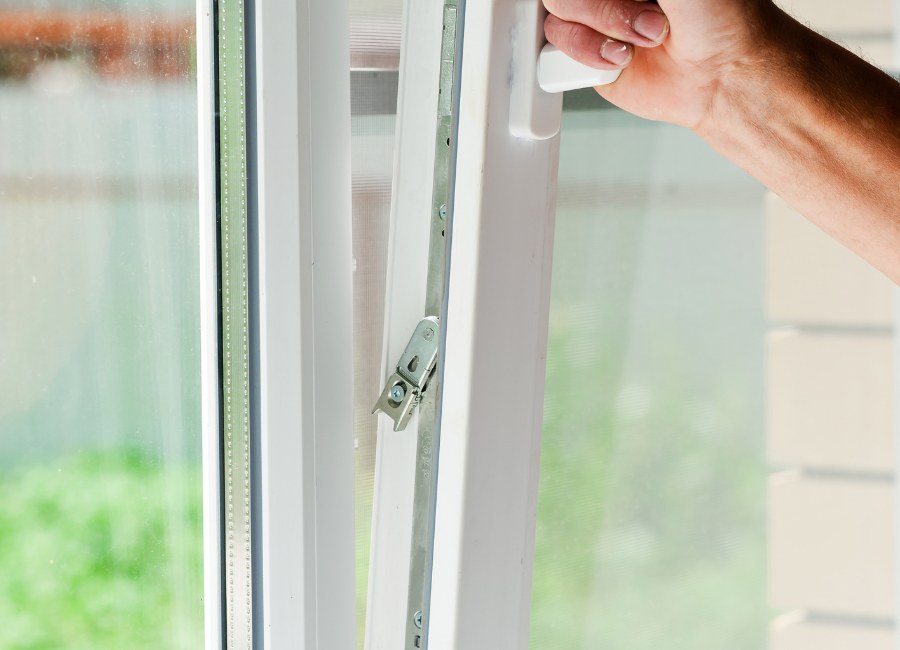Composite windows have been gaining significant popularity in the market as homeowners seek durable and energy-efficient window solutions. With their unique composition and exceptional performance, composite windows offer a range of benefits that make them a worthy investment. In this blog post, we will explore the pros and cons of composite windows to help you make an informed decision for your home.
Understanding Composite Windows
Composite windows and their composition:
Composite windows are made from a combination of materials, typically including wood fibres or particles mixed with polymer resins. The result is a strong and durable material that combines the best attributes of different components.
Composite windows differ from other window materials:
When compared to other window materials such as wood, vinyl, and aluminum, composite windows offer unique advantages. While wood is prone to rot and warping, vinyl lacks the strength and durability of composite materials, and aluminum may not provide optimal insulation. Composite windows provide a balance of strength, durability, and energy efficiency that sets them apart.
Various types of composite materials used in window manufacturing:
There are different types of composite materials used in the manufacturing of windows, each with its own characteristics and benefits. Some common composite materials include fibreglass-reinforced polymer (FRP), fibre-reinforced vinyl, and wood-plastic composite (WPC). These materials are engineered to provide exceptional strength, durability, and resistance to weather conditions.
Composite windows combine the desirable qualities of different materials to offer a high-performance window solution. Now that we have a basic understanding of composite windows, let’s explore the pros and cons associated with this window option.
The Pros of Composite Windows
A. Durability and Longevity
Composite windows are renowned for their exceptional durability and longevity. Unlike traditional wood windows that are susceptible to rot, warping, and moisture damage, composite windows are engineered to resist these issues. The combination of wood fibres or particles with polymer resins creates a material that can withstand the test of time. Composite windows are also highly resistant to extreme weather conditions, making them an ideal choice for regions with harsh climates.
B. Energy Efficiency
One of the significant advantages of composite windows is their excellent energy efficiency. The composite materials used in their construction provide exceptional thermal insulation, reducing heat transfer through the windows. This translates into lower energy consumption for heating and cooling, resulting in potential cost savings on utility bills. Additionally, the enhanced insulation properties of composite windows contribute to a more comfortable indoor environment by minimizing drafts and temperature fluctuations.
C. Low Maintenance
Compared to other window materials, composite windows require minimal maintenance. Unlike wood windows that need regular painting, staining, or sealing to maintain their appearance and protect them from the elements, composite windows have a built-in resistance to moisture, decay, and insect damage. This means homeowners can enjoy the benefits of composite windows without the hassle of frequent maintenance tasks. Simple cleaning with mild soap and water is usually sufficient to keep them looking their best.
D. Aesthetics and Design Options
Composite windows offer a wide range of design options and finishes, allowing homeowners to achieve the desired aesthetic for their homes. They can mimic the appearance of traditional wood windows, providing the warmth and charm associated with wood while offering enhanced durability and performance. Whether you prefer a classic, rustic, or contemporary look, composite windows can be customized to suit your style. They are available in various shapes, sizes, and configurations, giving you the flexibility to create a cohesive and visually appealing exterior for your home.
The Cons of Composite Windows
Higher Initial Cost
One of the potential drawbacks of composite windows is their higher upfront cost compared to other window materials. Due to the advanced engineering and combination of materials, composite windows can be more expensive to purchase and install initially. However, it’s essential to consider the long-term benefits they offer, such as durability, energy efficiency, and low maintenance. Over time, the investment in composite windows can be offset by potential energy savings and reduced maintenance expenses.
Limited Color Options
While composite windows come in a variety of finishes, they may have a more limited range of colour options compared to materials like vinyl or aluminum. However, this limitation can be mitigated by applying paint or stain finishes to match your desired colour scheme. It’s important to consult with window manufacturers or suppliers to explore the available colour options and finishes for composite windows and find one that complements your home’s style.
Susceptibility to Fading
Composite window surfaces may be susceptible to fading over time when exposed to prolonged sunlight. This is particularly relevant for dark-coloured finishes, as they tend to absorb more heat and UV radiation. To minimize fading, it is recommended to choose composite windows with UV-resistant coatings or to apply protective films. Regular cleaning and maintenance, as well as keeping window treatments like blinds or curtains closed during peak sunlight hours, can also help prolong the colour vibrancy of composite windows.
Considering the pros and cons of composite windows will help you make an informed decision for your home. In the next section, we will explore additional considerations for choosing composite windows, including budget, climate factors, and personal preferences.
Considerations for Choosing Composite Windows
Budget and Cost Effectiveness
When choosing composite windows, it’s important to consider your budget and evaluate the long-term cost-effectiveness of this window option. While composite windows may have a higher upfront cost compared to other materials, such as vinyl or aluminum, it’s essential to factor in their durability and energy-saving capabilities. Composite windows can provide significant energy savings over time, reducing heating and cooling costs and potentially offsetting the initial investment. By considering the long-term cost-effectiveness, you can make a more informed decision that aligns with your budget goals.
Climate and Environmental Factors
The local climate and environmental conditions should also play a role in your decision-making process. Composite windows are designed to withstand various climates, but it’s important to assess how they perform in your specific region. If you live in an area with extreme temperatures, high humidity, or frequent exposure to harsh weather conditions, composite windows can offer exceptional resistance and durability. Consult with window professionals or manufacturers to ensure that the composite windows you choose are suitable for your climate, providing optimal energy efficiency and protection.
Personal Preferences and Design Goals
While the performance and functionality of composite windows are crucial, don’t overlook the importance of aligning your personal preferences and design goals. Composite windows offer a range of design options, allowing you to choose the style, colour, and finish that best complements your home’s aesthetic. Whether you prefer a traditional, contemporary, or custom design, composite windows can be tailored to suit your preferences. Consider the architectural style of your home and explore different design options to find the perfect balance between functionality and visual appeal.
Conclusion
In conclusion, composite windows offer numerous advantages that make them a compelling choice for homeowners. They provide exceptional durability, energy efficiency, and low maintenance requirements. While the initial cost may be higher compared to other materials, the long-term benefits can outweigh the investment. By carefully evaluating your budget, climate factors, and personal preferences, you can select composite windows that meet your specific needs and enhance the comfort, energy efficiency, and aesthetic appeal of your home. Remember to consult with window professionals or suppliers to gather more information and make an informed decision.
Choosing the right windows is an important investment in your home’s comfort, efficiency, and overall value. By considering the pros and cons of composite windows and exploring the relevant factors, you can make a confident choice that brings long-lasting benefits to your living space.





